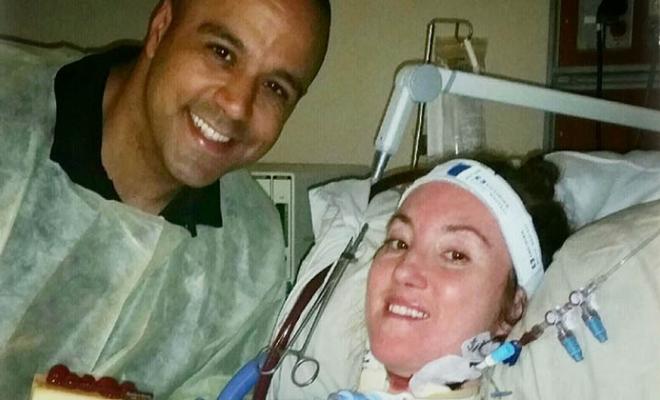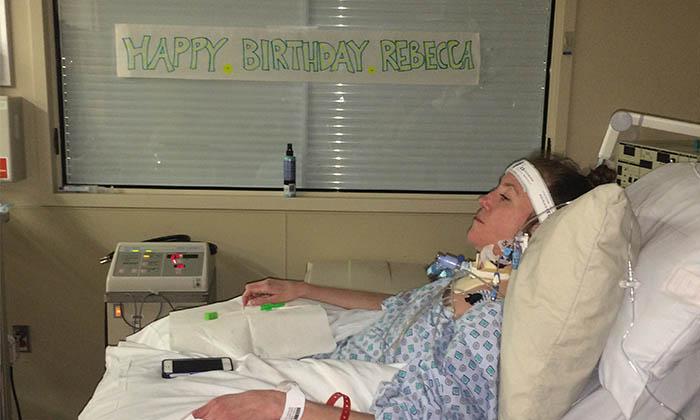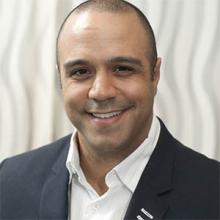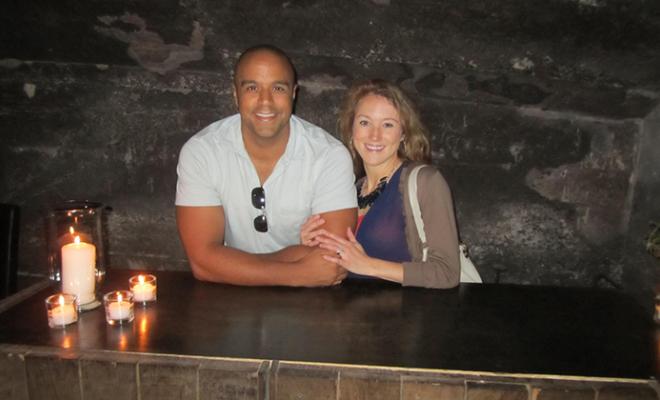Eighteen years ago, I met Rebecca, the woman I would eventually marry. She told me early on that she had cystic fibrosis and although I pretended to know what it was, she still provided me with an eight-page technical paper explaining the CFTR protein. Like many things with CF, what I thought I knew changed with circumstances or new information.
Over the years, I came to terms with what I thought Rebecca's CF meant as we built our life together. An argument disrupted by a coughing fit was often a stark reminder of what was truly important and the precious nature of time. Along with all of the medical challenges, her illness brought me perspective about what was -- what is -- truly important.
Roughly 17 years later, it seemed we had faced it all…CF-related diabetes, “tune-ups,” supplemental oxygen, and infertility. I was an expert in all of this -- until I wasn't. A weekend stay in Colorado turned a cold into altitude sickness, an oxygen saturation level of 52 percent, and ultimately, heart failure. This was a serious setback, and I worried that long hours at work and biweekly travel could exacerbate her declining health. It became clear to me that it was time for Rebecca to leave her job or, at minimum, reduce her hours.
The thing about perspective is that it is different for everyone. As convinced as I was, it was unlikely that Rebecca's boss would accept her resignation if it came from me and unfortunately, Rebecca had promised only to “consider” my impressively argued case.
Two months later, this decision was made for us as her progressive decline landed her in the intensive care unit (ICU). Yet again, I was prepared for anything -- just nothing new. It was New Year's Eve, 2014, when they intubated her and placed her on a ventilator. Her lungs had declined so quickly during that year that we had not even spoken about lung transplantation yet. It was shocking.
In an instant, my perspective shifted again. Vacation days were no longer for enjoyment; they were a critical resource allowing me to stay by Rebecca's bedside every day. In the beginning, I was worried that I would use them all up, knowing that I might require some for a future transplant, if she could qualify. These days quickly trumped salary and title as the most important benefits of my job.
As the month progressed, my perspective shifted again. Her care team told us that she probably had “days to weeks” to live. As I ate through vacation and then sick days, all I wanted was enough vacation time until she awoke from a chemically induced coma. Although my perspective had been that I could not lose my job because I still had to pay the bills, I began to think that an unpaid leave of absence would be a gift.
When Rebecca finally awoke in February, we had a whole new situation in front of us. Her body was atrophied. She was unable to walk, confused and unable to remember, on a ventilator and unable to qualify for a transplant. But … she was awake. All of the things I had wanted to tell her in January, I could tell her. Anything unfinished or unsaid could be resolved. I knew I would not be staying with my company for much longer, but suddenly, I did not care. My priorities shifted from holding onto my career as it was, to accepting that I could get another job. Perspective had shown that the most important thing was being there with her. I was either going to help her qualify for a transplant or enjoy our last days together as much as possible.
I have found that prioritizing another person's need over my own is usually not about making some dramatic sacrifice … but is often about making several smaller ones. I could not give up my lungs for Rebecca, but I could give up my job. There was no fantastic meal that would improve her week, but preparing a cooler with snacks and alternative meals could improve her day. It was not about running a half-marathon to support her … It was about finishing one and ignoring my wish to rest, so I could climb out of my seat to help her with physical therapy. By consistently remembering why I was there, I was forced to maintain perspective on these little things that actually make all of the difference. It may be impossible to be fully prepared, but a changing perspective can allow something that once sounded terrible to be acceptable. It can also take something that was expected, like another day together, and make it exceptional.







